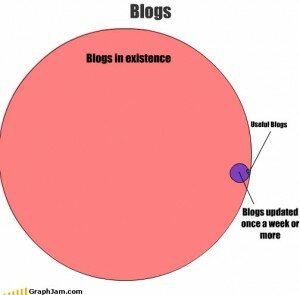Weber Media Partners | Impressions Through Media
Conversational Marketing in the Age of Social Media
- Home
- About This Blog
- Contact
- Sitemap
Archive for the ‘blogging’ Category
How Social Media Enabled Egypt’s Revolution: Part Three
Author: Theresa Grenier26 Jul
 In the last of our three-part series on the role of social media in Egypt’s ongoing revolution, we speak directly with Amr Abouelleil, who is one of the growing number of international Egyptian Youth Movement members.
In the last of our three-part series on the role of social media in Egypt’s ongoing revolution, we speak directly with Amr Abouelleil, who is one of the growing number of international Egyptian Youth Movement members.
Abouelleil is a 36 year-old Egyptian-American writer and bioinformatics analyst living in Massachusetts with his family. He lived his early life in Egypt, and returns every year to visit family, including a female cousin who is active in the revolution. His most recent trip was this past April, where he witnessed the effects of Egypt’s revolutionary activity first-hand.
His take: social media has been the cornerstone of communications during the revolution. Without social media, access to factual information would be limited, and more than likely colored by government spin and propaganda. It has enabled international supporters like Abouelleil to connect first-hand with other Egyptians, and to reach out to a broader audience to both gain support for the revolution and address the misinformation that abounds in traditional media and on the internet.
We hope you find yourself as inspired as we have been by the power of social media, and the strength and passion of those using it to build a better future for their country.
- 0 Comments
- Filed under: blogging, egypt, facebook, social influence, social media marketing, social media revolution, twitter, viral video, youtube
How Social Media Enabled Egypt’s Revolution: Part Two
Author: Theresa Grenier1 Jul
Two Can Play at this Game: World Governments’ Responses to Social Media as a Revolutionary Tool
 In the first part of this series, we explored how social media enabled and facilitated Egypt and Tunisia’s revolutions. By using Facebook and Twitter to broadcast their beliefs, find like-minded individuals the world over, and organize protests in near real-time, the revolutionaries were able to stay one step ahead of their governments. But now, it seems, the governments are catching up.
In the first part of this series, we explored how social media enabled and facilitated Egypt and Tunisia’s revolutions. By using Facebook and Twitter to broadcast their beliefs, find like-minded individuals the world over, and organize protests in near real-time, the revolutionaries were able to stay one step ahead of their governments. But now, it seems, the governments are catching up.
In Egypt, segments of the government and army are now on Facebook, using it as a means to spread their own propaganda and to keep an eye on known activist communities. At one point during the revolution, the Egyptian government even shut down internet access, fully aware of the threat it posed to the government. Amr Abouelleil, an Egyptian-American bioinformatics analyst and writer who is actively involved with the Egyptian Youth Movement at the heart of the revolution, says the government was aware that without the internet, people would have to turn to state television (which is government-censored) for their news. The government used this opportunity to up their ante, broadcasting pro-government programming to the unwired masses, which in many cases, appeared to work. “The government got some people to change their tune in just a matter of days,” Abouelleil says. “It brainwashed them to go back on Facebook in the government’s favor instead.”
Egypt is not the only government in fear of the power social media and the internet provides its people; when Google reportedly foiled an alleged Chinese attempt at stealing the passwords to hundreds of Google accounts, including those of government officials, Chinese human rights activists, and journalists. The Chinese government has since denied involvement, but is well known for their censorship of the internet and television. Whether or not the government is responsible for the hacking attempt, it’s safe to say that they are well aware of the power of the internet and social media, and doing all they can to control it.
Government reactions to the use of Google and social media have been so extreme in recent months that Google Executive Chairman Eric Schmidt has said he fears for the safety of Google employees in certain parts of the world. “There are countries where it is illegal to do things that Google encourages. In those countries, there is a real possibility of (employees) being put in prison for reasons which are not their fault,” Schmidt told attendees of Google’s Dublin summit on militant violence this past Monday, June 27.
A prime example of this is Wael Ghonim, the Egyptian Google executive who is now one of TIME magazine’s 100 most influential people of 2011. Ghonim was held captive by the Egyptian government for eleven days in early 2011 due to his involvement in using Facebook to organize protests via a page called “,” which exposed and raised awareness of the military’s cruel and inhumane murder of Khaled Saeed.
Content for People, Not Robots (well, mostly)
Author: Catherine Weber18 Sep
 Dianna Huff, DH Communications, presented content marketing at the SEMNE meeting on Wednesday. Her presentation focused on why SEO firms should think like marketers and helping clients create content. See her presentation here.
Dianna Huff, DH Communications, presented content marketing at the SEMNE meeting on Wednesday. Her presentation focused on why SEO firms should think like marketers and helping clients create content. See her presentation here.
I was excited to hear another marketing consultant expound on this important issue. The challenge for any business, large or small, with making social media succcessful and keeping it on track is to have a content strategy and have a regular stream of valuable content that speaks to your audience. Some SEO practitioners may be optimizing content, but not actually helping them produce it, when of course, SEO is not just about optimized content, but the continued publishing of optimized content that will actually be useful to your audience. It’s not just about the robots that index your website, it’s about the actual PEOPLE who read it!
We at Weber Media Partners recognized this as the main challenge for SMBs to contend with when they consider doing a social media work- from blogs to twitter to Facebook, if you want to stay in front of you customer, don’t annoy them and don’t be invisible- be helpful and interesting. Companies have the same issues when launching SEO and PPC campaigns. So, having said this, Dianna gave some great tips, which I agree whole heartedly with: (more…)
- 3 Comments
- Filed under: blogging, content creation, ebooks, SEO, social media marketing, social media monitoring, viral video
It’s No Secret Why Blogs Fail
Author: Catherine Weber31 Jul
 This week I’ve had some interesting conversations with clients about their social media strategy.
This week I’ve had some interesting conversations with clients about their social media strategy.
During a discussion on blogging, one of our clients pointed out that everything they see on blogs is BORING, longwinded, and is more like stream of consciousness thoughts vs. useful information.
If you Google “Why Blogs Fail”, you will get more than 89 million links to articles, many of them blog posts to this very topic. The reason blogs fail is not a secret, and some statistics claim that 95% of them do.
- Blogs fail because the organization has not made a real commitment to resources
- Blogs fail because there is no clear content strategy
- Blogs fail because the author doesn’t know if anyone is listening
What is considered blog success?
If your blog
- contributes something of value and demonstrates your expertise regularly (at least once per week)
- set you apart from your competition
- has visitors who read your content (how many depends on what share of the audience you want)
- gets comments and starts conversations
you can feel pretty good that your blog is going in the right direction.
(more…)
- 5 Comments
- Filed under: blogging, social media marketing
Advice for Bloggers: Write for the World
Author: Debbie Hemley9 Jul
In the new book, , bloggers are advised to “write for the world.” We’re reminded that the web is a worldwide medium and “site visitors probably come from more than one country and more than one culture. Collectively, they probably speak several languages.”
I review the analytics for this site on a regular basis and am often intrigued to see the far-reaching range that posts can have. This past month visits came from 47 countries/territories and 23 languages. (Drilling down a little further I could even see that one recent post was picked up and cited on a blog in Brazil and then viewed most heavily in Sao Paulo.)
So what’s a blogger to do?
• You can start by following five best practices from the style guide: 1) Keep the sentence structure simple, 2) Include “signposts”: words that help readers see how the parts of a sentence relate, 3) Eliminate ambiguity, 4) Avoid uncommon words and non-literal usages, and 5) Rewrite text that doesn’t translate literally.
(more…)
- 4 Comments
- Filed under: blogging, social media marketing
How To: Get the Most Value from Your Blog Posts
Author: Debbie Hemley2 Jul
In a new post by Denise Wakeman she suggests repurposing your blog posts into different formats to “get more exposure and more value from the time you’ve initially invested in creating the content. Not to mention that you can drive more traffic back to your home base.”
What can you do with the post once its been published on your site? Denise suggests turning the content into different formats such as “reports, white papers, articles, slide shows, videos, podcasts, teleseminars, ebooks, etc.”
One place where you can repurpose your content is in your email newsletter by including a few lines in a short piece and linking back to your blog. That way you’ve not only repurposed the content but possibly have taken your non-blog reading client to your posts and demonstrated to them what they’ve been missing. Include too, a call to action to to sign-up to receive updates about your posts via rss feed or by email subscription.
- 2 Comments
- Filed under: blogging, social media marketing
The Risks of Doing Nothing: Social Media for Healthcare
Author: Catherine Weber6 May
 Social media can have an impact on health care organizations, whether the organization has proactive programs or passively chooses to ignore it. By doing nothing, hospitals are at more legal risk because no clear guidelines articulate how staff should participate in social communities, how doctors share medical advice on blogs and where patients get medical information.
Social media can have an impact on health care organizations, whether the organization has proactive programs or passively chooses to ignore it. By doing nothing, hospitals are at more legal risk because no clear guidelines articulate how staff should participate in social communities, how doctors share medical advice on blogs and where patients get medical information.
Andrew Cohen of Forum One, recently wrote about the session he attended at the South by Southwest Interactive Conference, which identified legal issues as the top concerns of hospital administrators. Second to this is “lack of comfort with social media by administrators as well as staff…”
With patients helping themselves to information on websites that may or may not be good information, hospitals and other healthcare organizations like lifecare facilities have an opportunity to help guide patients and their families to good information and support.
In fact, every department needs to consider how social media effects them including human resources, legal, marketing, IT, patient services, and each and every medical specialty. In 2009, we met with many of the SVPs at a major teaching hospital north of Boston, Lahey Clinic, to give them a sense of what they need to think about.
(more…)
- 1 Comment
- Filed under: blogging, social media marketing, social media marketing, web 2.0
All Blog Content Isn’t Created Equal
Author: Catherine Weber12 Apr

Here’s the dilemma: all blog content isn’t created equal. On the one hand we’re told people should write in a casual manner, be transparent, say what’s on their mind. But when does sharing become oversharing? Take the case of conductor Leonard Slatkin who was “pelted by brutal reviews” and bowed out of the production in humiliation after he blogged that not only was he new to “La Traviata,” but that he was”somewhat naïve in this repertoire.”
A few years back, Curt Schilling started blogging on 38Pitches.com about every pitch and what was going through his mind. Managers told him point-blank—stop. Give away the mechanics and you risk losing the awe of your fans.
In business, it’s not a company’s mission to tell customers the most inner workings of their organization; product development secrets, what regions they’re thinking about expanding into. Companies keep those cards close to their chest and divulge the information when and if it’s time.
If the conductor or the baseball player’s blog had been treated like any other media outlet, the organization could have nipped those blog posts in the bud. Ideally they would have had a content strategy and coached the writer on what’s acceptable and appropriate to write about. And more importantly, what’s not. They wouldn’t have been forced to censor.
Transparent, authentic voices—yes. But within guidelines.
- 3 Comments
- Filed under: blogging, social media marketing
Blogging Your Way to Happiness
Author: Debbie Hemley1 Apr
 There’s been a lot of interest in Gretchen Rubin’s book, The Happiness Project which was published in late 2009 and became a #1 New York Times Bestseller. The book is a memoir of the year Gretchen spent “test-driving the wisdom of the ages, the current scientific studies, and the lessons from the popular culture about how to be happy–from Aristotle to Martin Seligman to Thoreau to Oprah.”
There’s been a lot of interest in Gretchen Rubin’s book, The Happiness Project which was published in late 2009 and became a #1 New York Times Bestseller. The book is a memoir of the year Gretchen spent “test-driving the wisdom of the ages, the current scientific studies, and the lessons from the popular culture about how to be happy–from Aristotle to Martin Seligman to Thoreau to Oprah.”
As a blogger, and someone who derives a great deal of pleasure and happiness from blogging, I loved the part of the book where Gretchen describes launching her blog.
While my blog posts usually have more of a business focus on topics such as social media marketing, I wanted to take this opportunity to share Gretchen’s perspectives on blogging—mostly because I identify. And, because I often talk with people who are contemplating starting a blog and wondering how it will be for them. These passages describe my experiences so perfectly. I believe that if you want to blog, once you get through the initial steps, you too will reap the benefits which come from blogging.
In Gretchen Rubin’s words from The Happiness Project:
Q & A with Steve Garfield, Author of Get Seen: Online Video Secrets to Building Your Business
Author: Debbie Hemley15 Jan
If you’ve thought that having a working knowledge of YouTube covered your video bases, you’ll be in for a wonderful treat by reading Steve Garfield’s new book, Get Seen: Online Video Secrets to Building Your Business—which lets you in on some of the best kept secrets out there.
I was completely engrossed in Steve’s book which I read in one day, only stopping to try out many of the things he references. Within a short period of time, I found myself streaming video from my iPhone on qik, creating blog posts on posterous, developing unique videos on animoto, researching mics for iPhones, checking-out vimeo, blip.tv, how to create a playlist of our videos on youtube, making a screencast on jing.
By half-way through the book I was convinced how no social media marketing campaign will be complete without video.
While high-end video cameras and experienced videographers are certainly one way to go, Steve demonstrates how by having an interest in shooting video and a wide range of tools to choose from, video is within every business’ reach regardless of your budget. Above all, Steve demonstrates how interest and passion will be your ticket.
Steve is right here to tell you about his book himself (in his video, of course!) And after viewing, keep reading our exclusive interview.
(more…)
- 2 Comments
- Filed under: blogging, books, social media marketing
- Subscribe To Feed (RSS)
- Comments (RSS)
- Subscribe via Email







Recent Comments
Do businesses need both?